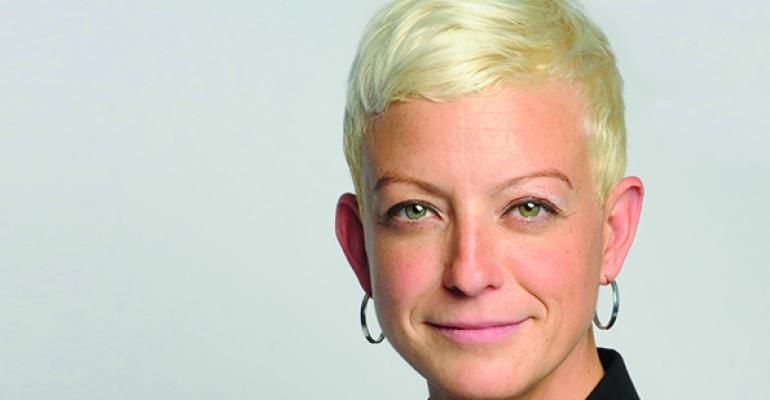REP.: How did you find you way into wealth management?
Emily Phillips: I met my current business partner, Donna Drosner, though an organization called Professional Dimensions, Milwaukee’s leading business organization for women who are highly committed to business and philanthropic success.
She asked me about my career goals and my aspirations, and I was very impressed with Donna because of her commitment to philanthropy. Through conversation and seven months of due diligence researching the industry in general, I came to the realization that Donna had built a practice with a commitment to her clients to always do the right thing. Not at all what I thought of the financial service industry or Wall Street in general and I learned how being an advisor, you get to work with the individual.
REP.: Why was it important for you to work somewhere you felt was different from Wall Street?
EP: At the University of Wisconsin-Milwaukee, I studied history and sociology. I wanted to be an attorney and change the world, but in my senior year I got in a car accident and had to withdraw. I went though 12 surgeries and had to delay college graduation in order to stay on my mom’s health insurance. There was no way in heck I could stomach law school at that point. Seven years of undergrad was enough for me!
REP.: What were some of the challenges you faced when you first started?
EP: The industry is intimidating. You’re reading analyst’s reports and people have impressive degrees and designations for miles. You work on a floor with people with the same pedigree and you think to yourself, “how can I, with a history and sociology degree, measure up to this type of stature?”
If you’re intelligent and have a technical aptitude, what it takes to be successful in this industry is not your education, its your resiliency and ability to change. I see people that put clients to sleep because they can’t relate.
REP: How did you set yourself apart?
EP: I spent my entire first year in the business community make sure whenever someone says “Emily Phillips,” it was synonymous with Baird Advisors, wealth management, change agent and community activist. I wanted people to know I wasn’t your traditional financial planner that would show up with a canned script.
REP.: How is it going now?
EP: I’m glad we’re having this conversation this year and not last! After two years, I’ve hit the goals Baird has asked of me and the goals my business partner has asked of me.
Is it good enough? No, and it probably won’t be for two more years. But do I see the light at the end of the tunnel? Absolutely.
A Different Demographic
REP.: Why do you target younger clients?
EP: I know that if I can get my hands on them when they’re young, I can help them create financial security and independence a lot sooner than a lot of retirees.
The way compensation is wired, it makes people like me go after everyone who has accumulated high net worth, not people on upswing. I can join the pool where everyone is chasing the same person, or provide to individuals who really need it. One of the ancillary benefits is the parents notice and wonder why their 32-year-old kid is getting all this when they only get a call once or twice a year.
I’m 33 years old, and if I’m going after all these people their late 50s and 60s who already have a relationship, that’s like pushing a boulder uphill. And someone with a $200,000 portfolio is just as deserving as someone with $50 million.
REP.: How would you like to see the wealth management change?
EP: I would love to see more non-traditional individuals enter the industry, especially young Gen X and mature millennials. And I hate those parameters, but when we think of wealth management we think of an old white guy in navy blue suit who is fairly dry and is just getting into details and money and essentially boring. If I can have anything to do with attracting more people like myself who have purpose, who have conviction, who believe in helping others join the business, I would love to see that happen.
REP.: Are there other parts of the industry you think are flawed?
EP: I get nervous about being too critical of the industry, but if we don’t hold ourselves to a higher standard, we’ll never be the best possible version of ourselves.
So many people do just pure brokerage, and consumers want more. They don’t need access to investments or information, but they do need knowledge and wisdom. If you could get more people who are excited about that type of consulting approach and having those relationships with people, I think you could upgrade the industry’s image.
REP.: How would you like to see wealth management change?
EP: When we think of wealth management, we think of an old white guy in a navy blue suit who’s fairly dry and is just getting into details and money and is, essentially, boring. If I can have anything to do with attracting more people like myself who have purpose, who have conviction, who believe in helping others join the business, I would love to see that happen.
People in this industry are afraid to be who they are. If we don’t look rigid or look reserved, we’re not taken seriously. I study and research and read every day just so I can constantly be a better version of myself as an advisor, but I know how to laugh and celebrate and have fun and be a human being. Our industry could use some more humanity in it. We’re not robo advisors.






